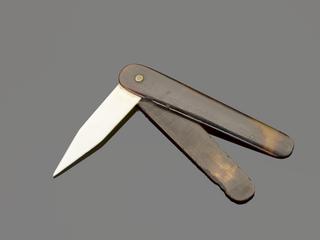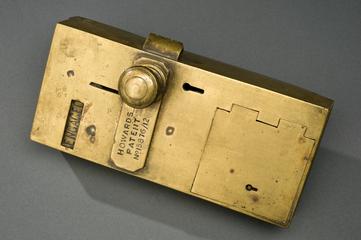
12 ampoules of ferruginous neurasthenic serum, London England, 1893-1936
- maker:
- Allen & Hanburys Limited












12 ampoules of ferruginous neurasthenic serum, in original carton, by Allen and Hanburys Limited, 7 Vere Street, Cavendish Square, London, W1, England, 1893-1936.
‘Azoule’ ferruginous neurasthenic serum (FNS injection) was sold as a strengthening tonic for neuresthenia, anemia and circulation disorders. Neurasthenia is Greek for ‘nerve weakness’ and the disease was identified and named in the late 1800s. Nervous illnesses and nervous breakdown became increasingly diagnosed in North America and Europe at this time. Neurasthenia was supposedly caused by modern industrialised societies. However, it was never clearly defined and became a catch-all term for ‘nervous disorders’. These 12 glass ampoules were made by British company Allen & Hanburys Limited. They contain strychnine cacodylate, a mixture of strychnine and organic arsenic. Strychnine is a dangerous poison used as a stimulant for the central nervous system and to treat nerve disorders. It was one of a range of ‘medicines’ available during the early years of the twentieth century which worked on the widely held belief that small doses of poisons were a tonic for the body. The medicine was administered by intravenous injection.
Details
- Category:
- Public Health & Hygiene
- Collection:
- Sir Henry Wellcome's Museum Collection
- Object Number:
- A601053
- Materials:
- carton, paper and ampoules, glass
- Measurements:
-
overall: 25 mm x 170 mm x 60 mm,
- type:
- ampoule




